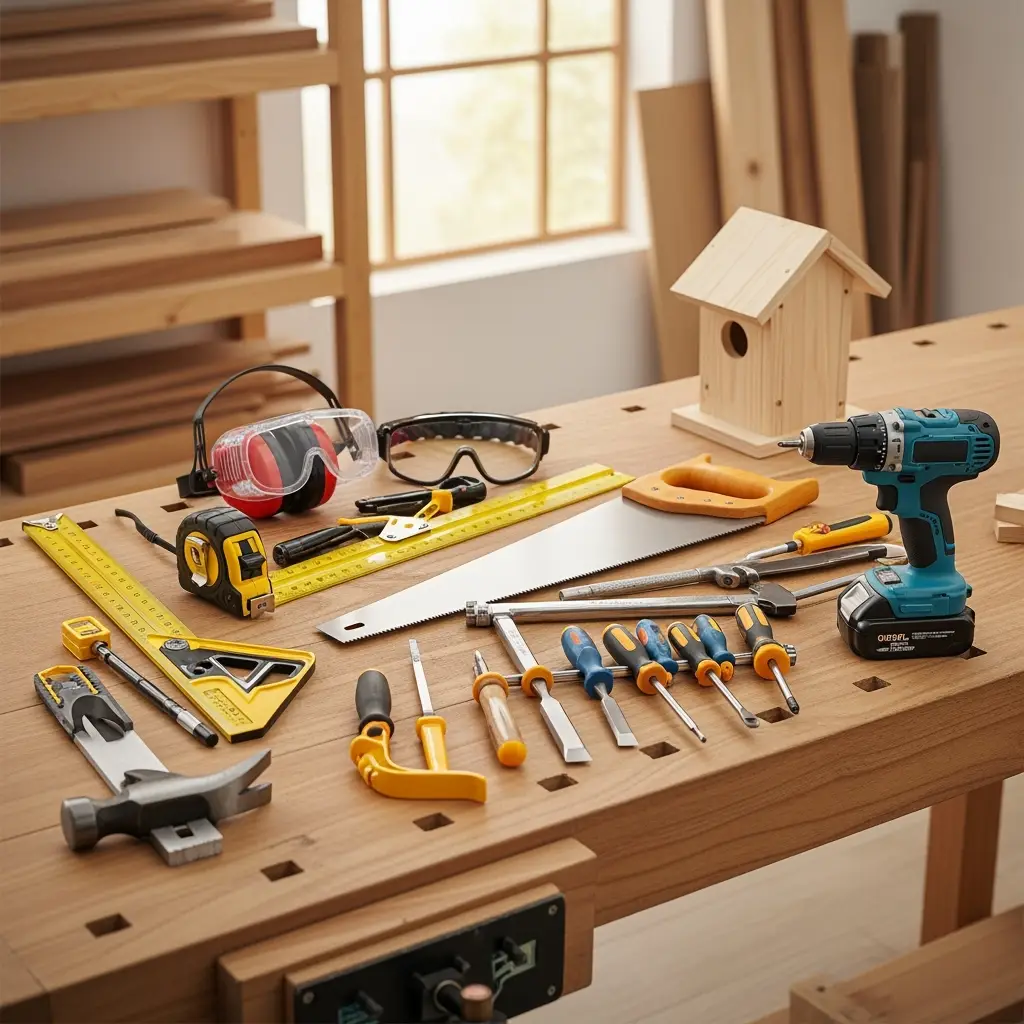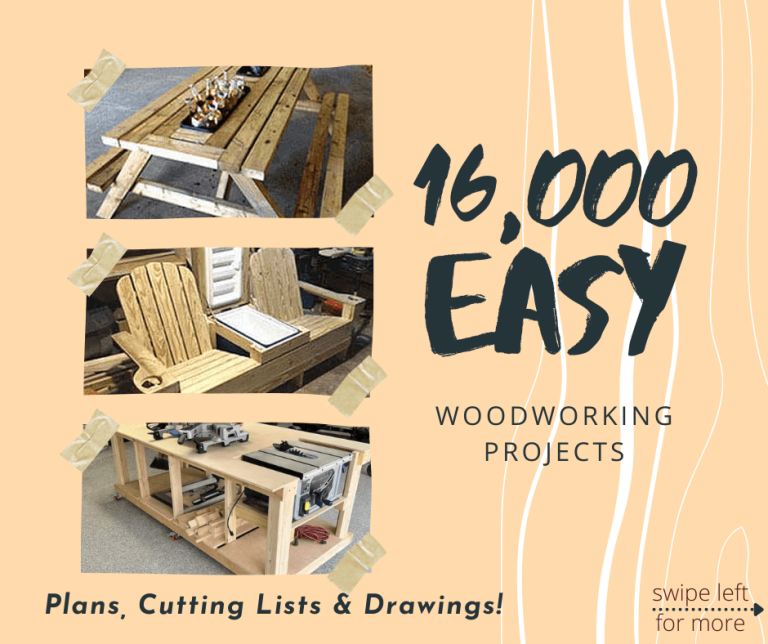So you’re ready to dive head-first into the world of woodworking, huh? Well, hold up, champ! Before you start swinging hammers and sawing everything in sight, you’re gonna need to know which tools are truly the best beginner woodworking tools. Trust me, walking into a hardware store without a solid plan is like wandering into a jungle with a toothpick for defense. Srsly, the options are wild. But don’t worry, I gotchu! By the end of this epic guide, you’ll know exactly what you need, why you need it, and how these best beginner woodworking tools will have you building like a pro and grinning from ear to ear.
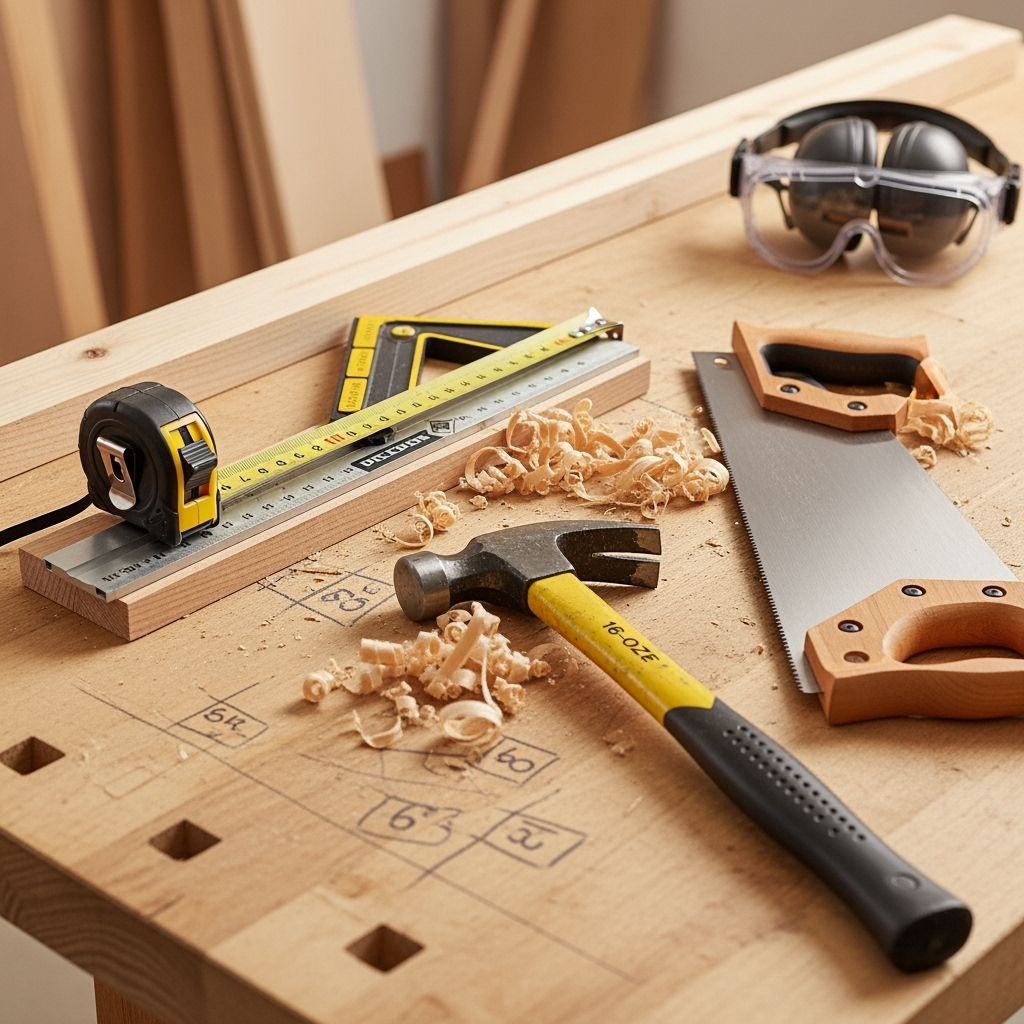
Why Choosing the Right Tools Matters for Beginners
It’s tempting to snatch up every shiny gizmo you see, but starting with the best beginner woodworking tools is absolutely key. Woodworking is about skill, not how blinged-out your toolbox is. The right beginner tools help you:
- Avoid wasting money on stuff you won’t use yet
- Speed up your learning curve
- Make your newbie projects way more fun and less frustrating
- Stay safe (splinters SUCK, and so do injuries from power tools with way too many buttons)
Alright, let’s jump into what counts as the best beginner woodworking tools and how each one fits in the whole DIY puzzle.
The Absolute Must-Have Best Beginner Woodworking Tools
You don’t need a fancy workshop to get going. The best beginner woodworking tools are actually pretty manageable, and you can build up as your skills grow. Here’s a breakdown of the MVPs:
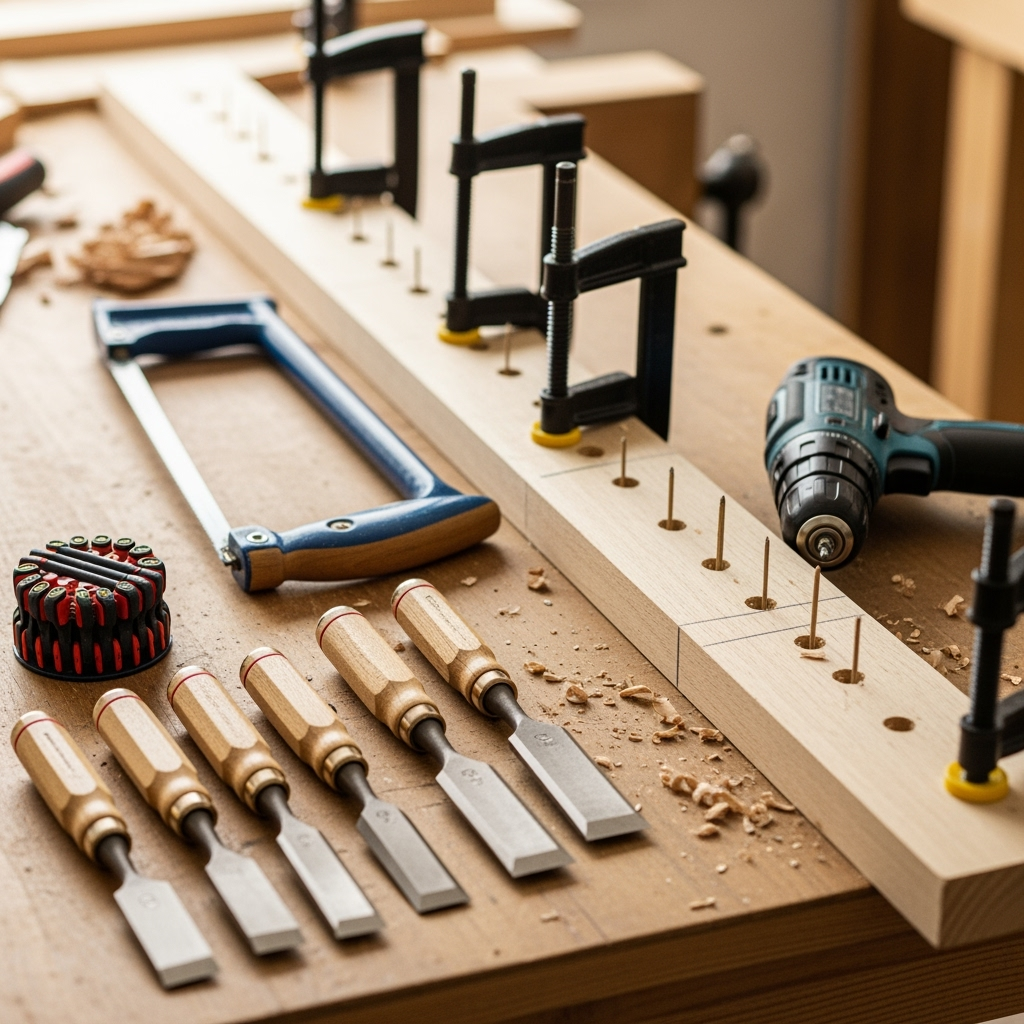
1. Tape Measure
Accuracy is the name of the game. A good ol’ tape measure is hands-down one of the best beginner woodworking tools. Error here means wonky shelves, crooked boxes, and all kinda disasters. Go for one that’s at least 16 feet long, sturdy, and easy to read.
2. Speed Square
This glorious triangle is the unsung hero—use it for marking, scribing, measuring, and checking if stuff’s actually square. Seriously, if your projects aren’t square, they just look…off. Speed squares deserve a spot on every list of the best beginner woodworking tools—check out this guide to square wood cuts for pro tips.
3. Claw Hammer
Oh, the classic. Needed basically everywhere. A 16-ounce hammer is perfect for a beginner. It allows you to drive in and pull nails easily, making it a staple among best beginner woodworking tools.
4. Handsaw
Before you start dreaming of massive power saws and fancy carpentry machines, start with a quality handsaw. It gives you precision, control, and it’s WAY less intimidating for those first cuts. That’s why it always lands in the ranks of best beginner woodworking tools.
5. Chisels
For finicky and detailed work (think joints, notches, squaring edges), a sharp woodworking chisel is legit essential. Start with a set (usually 1/4, 1/2, and 1 inch) and you’re set to handle basic carving, trimming, and mortising tasks. These could easily be your best beginner woodworking tools for detailed work.
6. Coping Saw
This lightweight saw is designed for cutting curves and intricate patterns the handsaw can’t handle. It’s so versatile and totally belongs in the best beginner woodworking tools lineup.
7. Screwdriver Set
You’ll run into all sorts of fasteners building projects. Pick up a multi-size set with both Phillips and flat tips. This is a no-brainer addition to your kit of best beginner woodworking tools.
8. Power Drill
If you’re gonna splurge a bit, do it here. Cordless power drills save your wrists and make joining parts way easier. Get one in the 12V to 18V range—plenty powerful for beginners. Plus, it’s one of the best beginner woodworking tools for boring holes and driving screws.
9. Safety Gear
Not exactly “tools,” but essential AF. Safety goggles, ear protection, and dust masks protect you while you work with your best beginner woodworking tools—don’t skip our top safety tips for woodworking. Ain’t no shame in playing it safe—no one looks cute with sawdust in their eyes!
10. Workbench or Sawhorses
A sturdy surface is everything. Don’t just bang on your floor or dining table (your family will be
mad as heck). Even a simple plywood bench or two sawhorses make using your best beginner woodworking tools way comfier and safer.
How to Choose the Best Beginner Woodworking Tools for Your Projects
If you’re feeling a little overwhelmed sorting through the best beginner woodworking tools, chill—it’s all about your actual needs. Here’s a pro process for picking:
- Pace yourself: Start with hand tools, then power tools as your skills (and budget) grow.
- Read project instructions: What tools do your favorite plans call for?
- Buy quality, not quantity: It’s better to have a few awesome, reliable pieces than a whole pile of cheap junk.
- Shop secondhand: Hit up yard sales and online marketplaces! A lot of the best beginner woodworking tools can be scored cheap used.
Best Beginner Woodworking Tools in Action: First Projects to Try
You got your toolkit, now what? Skip complicated stuff at first. Here are epic ideas that’ll help you master your best beginner woodworking tools:
- Birdhouses – Cute, small, and teach you about joints and finishing. Check out this DIY birdhouse tutorial for a fun starter project.
- Simple bookshelf – Keep it minimal and learn to cut, join, and get stuff level.
- Picture frames – Hone accuracy in measuring and miters.
- Storage boxes or crates – Practice fasteners, handle cutouts, and sanding.
- Garden planter or raised bed – Outdoor projects teach finishing and durability basics.
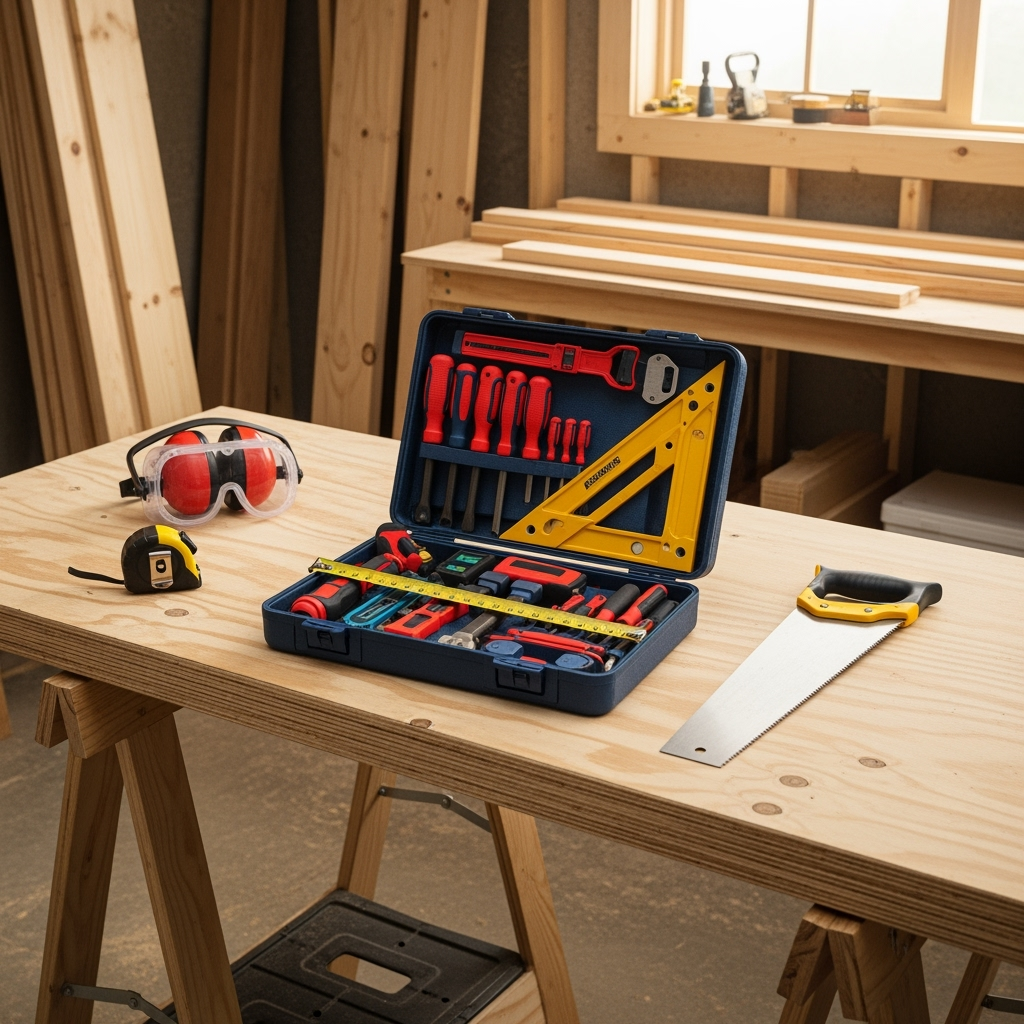
Upgrading Beyond the Basics: Expanding Your Beginner Toolkit
Once you’re comfy with your current crew, you’ll probably want to pimp out your best beginner woodworking tools with upgrades. Look out for:
- Orbital sander – So much faster (and less wrist-numbing!) than sanding by hand.
- Circular saw – For making long, straight cuts in sheet goods and thick lumber.
- Jigsaw – Even more control over curves than a coping saw.
- Level – Measure with next-level accuracy (pun absolutely intended).
- Wood glue – For joinery stronger than nails alone.
All these are natural progressions that complement your best beginner woodworking tools without totally overwhelming you. There’s no shame in adding one tool at a time.
Big Mistakes to Avoid with Best Beginner Woodworking Tools
Dude, if I had a nickel for every time I heard a newbie say “I’ll just wing it,” I’d be rich! Don’t make these rookie mistakes when building up your best beginner woodworking tools:
- Buying cheap knockoffs – They break, slip, and sometimes make you bleed. Pass on ‘em.
- Skipping safety gear – You can’t take back an accident.
- Trying to do advanced joints right away – Nail the basics (pun intended) before going fancy.
- Skipping tool care – Dull blades and rust will break your stuff way faster than you think.
How to Get the Best Bang for Your Buck with Best Beginner Woodworking Tools
Budgeting is the name of the game, fam. The best beginner woodworking tools don’t have to cost you your arm and your leg. Here’s my thrifty blueprint:
- Tool combos – Find kits that group tape measures, hammers, and squares for a deal.
- Refurbished deals – Hit up manufacturer-certified outlets for steep discounts on quality brands.
- Borrow before you buy – Some community workshops or tool libraries let you test drive before you drop cash.
- Read reviews from legit users – Skip fake ones and watch woodworking YouTubers for honest impressions of best beginner woodworking tools.
Where to Shop for the Best Beginner Woodworking Tools
You don’t always need to hit up the big box stores. Check these spots for the best beginner woodworking tools (and sometimes, better prices):
- Local hardware stores – Ask for advice, touch and feel the tools, and sometimes find deals.
- Online retailers – Amazon, Home Depot, Lowe’s, and even eBay for used bargains.
- Specialty woodworking shops – Staff often know their stuff and offer better beginner sets.
Real User Reviews: Best Beginner Woodworking Tools That Actually Rock
Before you splurge, peek at some feedback from other newbies who recently built their own arsenal of best beginner woodworking tools:
- Maddie, 24: “I started with my dad’s old toolbox but the first new thing I bought was a quality chisel—I use it all the time. Worth it!”
- Rich, 37: “Cordless drill, man. Everything changed overnight. No more hand cramps. My wife even stole it for home repairs!”
- Rani, 29: “I thought I could skip the speed square…regretted that quick. Just do yourself a favor and get one.”
FAQs: Everything You Wondered About the Best Beginner Woodworking Tools
- How much should I spend on my first set of best beginner woodworking tools?
You can get started for $100–$200, splurging up to $300 for nicer power tools. Stick to basics until you know what you love! - Which tool brands are trustworthy for beginners?
Dewalt, Stanley, Makita, Irwin, and Milwaukee are famous for a reason. Even their basics often last for years. - Should I start with power tools or hand tools?
Hand tools teach patience and precision, but a drill makes life easier right away. Start with hand tools and add a drill if budget allows. - How do I care for my best beginner woodworking tools?
Keep ‘em dry, clean after every use, sharpen blades, and oil moving parts if needed.
The Bottom Line: Your Journey with the Best Beginner Woodworking Tools
Building your first toolkit isn’t about spending big or looking pro from day one. The best beginner woodworking tools are about learning, growing, and loving the process of making something totally unique with your own two hands. Don’t overthink it—start small, level up your skills one project at a time, and never forget the satisfaction of nailing that first perfect joint. You got this! Now, get your hands dirty, stay safe, and enjoy the wild ride with your brand-new set of best beginner woodworking tools. Catch ya in the workshop!

